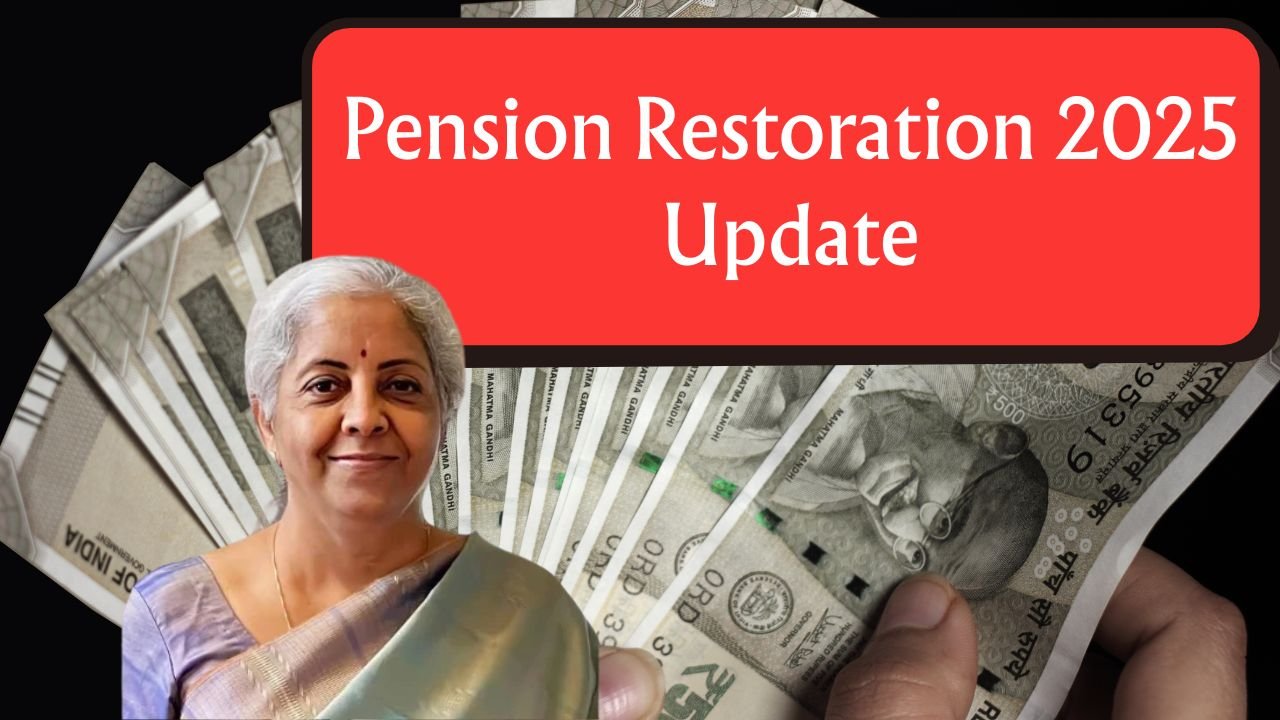Pension Restoration 2025 Update: In a groundbreaking development that has taken the administrative and retiree communities by surprise, the long-anticipated 8th Pay Commission Machinery has come into public discourse with a potential reform that could bring far-reaching effects. One of the most notable proposals now making waves is the possibility of a reduction in the pension restoration period from 15 years to 12 years. If implemented, this would directly impact lakhs of retired central government employees across India, offering them financial relief in a shorter span of time.
Understanding Pension Restoration 2025 in Simple Terms
At present, the pension system for government retirees follows a standard process of commutation. When a pensioner chooses to commute, a portion of their pension is paid in advance as a lump sum. In exchange, the same amount is deducted from their monthly pension for the next 15 years. Once this duration concludes, their full pension is restored.
The concept of restoration essentially signifies the reestablishment of the full monthly pension after the commuted portion has been adjusted for the predefined period. Currently, this stands at 15 years. However, ongoing discussions within retiree groups and administrative circles suggest that this time frame may be trimmed down to 12 years—a move that has long been demanded by various pensioners’ associations.
Why the Proposed Reduction Matters
A shift from a 15-year to a 12-year restoration model could substantially change the financial trajectory of many pensioners. Given rising medical expenses, inflation, and the overall cost of living, many retirees find the current 15-year delay in full pension restoration to be out of step with real-life necessities. A shorter duration would not only enhance monthly financial stability for pensioners sooner but also serve as a humane response to the growing demands of life post-retirement.
Pensioners Who Stand to Benefit the Most
| Category | Description |
| Central Government Pensioners | Retired employees under various central ministries and departments |
| Defence Personnel | Army, Navy, and Air Force veterans who opted for commutation |
| Railway Retirees | Former railway employees who fall under the CCS (Pension) Rules |
| Civil Services Retirees | IAS, IPS, IRS, and other central administrative service pensioners |
| PSU Pensioners (where applicable) | Select public sector retirees whose pension structure aligns with CCS norms |
The Broader Agenda of the 8th Pay Commission
While no formal notification has yet been issued for the formation of the 8th Pay Commission, there are strong indications about its possible mandate. Once constituted, it is likely to take up a complete overhaul of the pay, pension, and perks structure for central government employees. This may include revision of salaries and allowances, restructuring of the Dearness Allowance formula, pension commutation reforms, and the potential rollout of performance-based incentive models.
The inclusion of pension restoration period reduction in early discussions highlights that the commission could be oriented toward progressive financial measures that reflect today’s socio-economic realities, especially in the post-retirement phase.
Frequently Asked Questions
1. What does pension restoration mean for a government employee?
Pension restoration refers to the resumption of full monthly pension after a portion has been deducted for a fixed period due to commutation.
2. Has the 8th Pay Commission officially proposed the 12-year restoration model?
No, the 8th Pay Commission has not been officially constituted yet. The 12-year proposal is under discussion and being supported by retiree groups.
3. Who qualifies for pension restoration under CCS (Pension) Rules?
All central government employees who opted for pension commutation and retired under the CCS (Pension) Rules are eligible for restoration.
4. What would be the financial impact of reducing restoration time from 15 to 12 years?
Pensioners would start receiving their full pension three years earlier, providing increased monthly financial support during their older years.
5. Is this change guaranteed to happen soon?
While widely discussed and backed by pensioner organizations, the change will only take effect if the 8th Pay Commission recommends it and the government approves the proposal.
If this historic pension reform sees the light of day, it could very well set a new precedent for future retirement policies in India.
Read: EPFO 3.0 Update 2025: Now Withdraw Your Entire PF Balance Instantly Using Your ATM Card!

